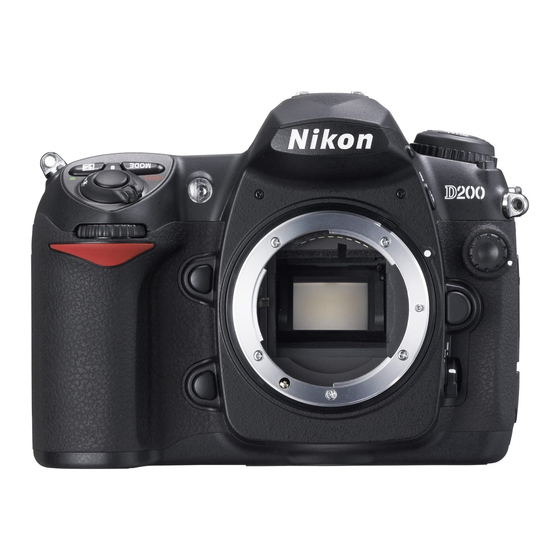- ページ 3
カメラレンズ Nikon D200のPDF パンフレットをオンラインで閲覧またはダウンロードできます。Nikon D200 14 ページ。 Exploring
Nikon D200 にも: パンフレット&スペック (13 ページ), パンフレット (7 ページ), セットアップマニュアル (2 ページ), パンフレット&スペック (18 ページ), 仕様 (2 ページ), 特徴と比較表 (1 ページ), ユーザーマニュアル (19 ページ), 仕様 (2 ページ), 操作マニュアル (23 ページ), クイック・スタート・マニュアル (2 ページ), マニュアル (25 ページ), クイック・スタート・マニュアル (9 ページ)

